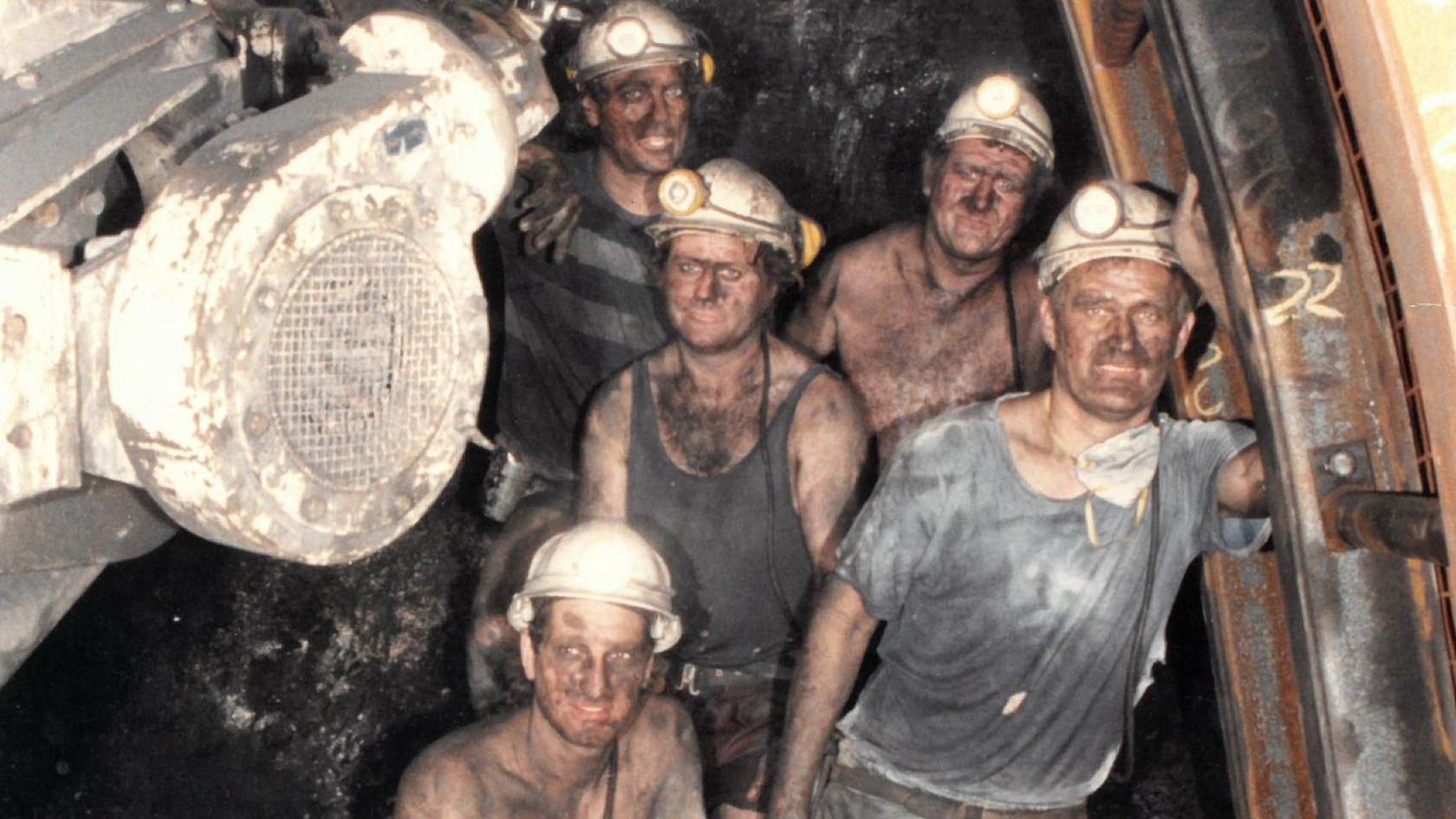Littleton Colliery miners strike remembered
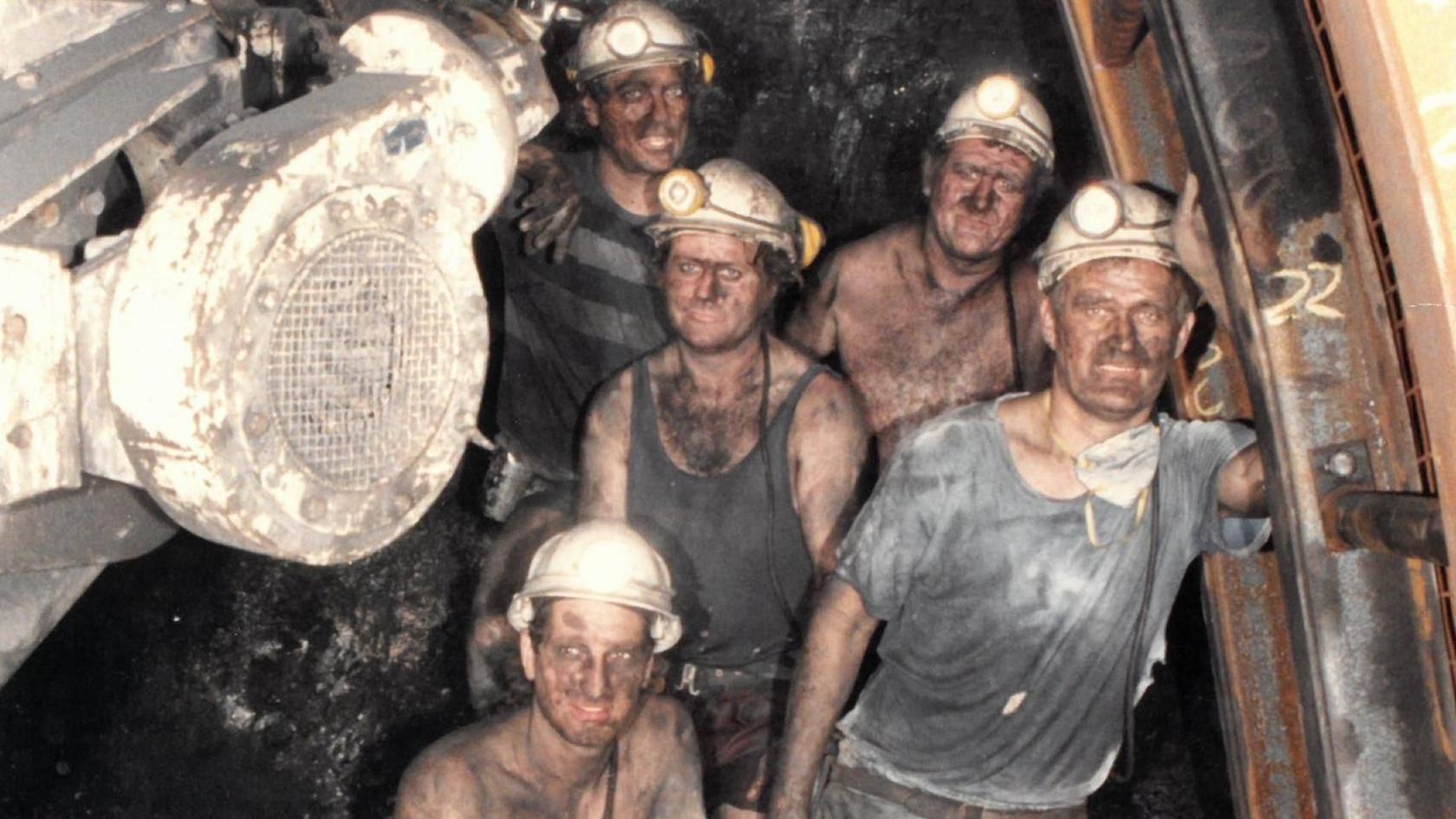
Littleton Colliery heading team stand by the cutting machine
- Published
Forty years ago this week miners at Littleton Colliery downed tools and walked out.
Many of the Staffordshire workers would not return to work for a year.
The workers wanted to show unity with National Union of Mineworkers (NUM) members in other parts of the country, where strikes had started a week earlier.
"We were fighting for our jobs and for a good wage into the house," one former miner said.
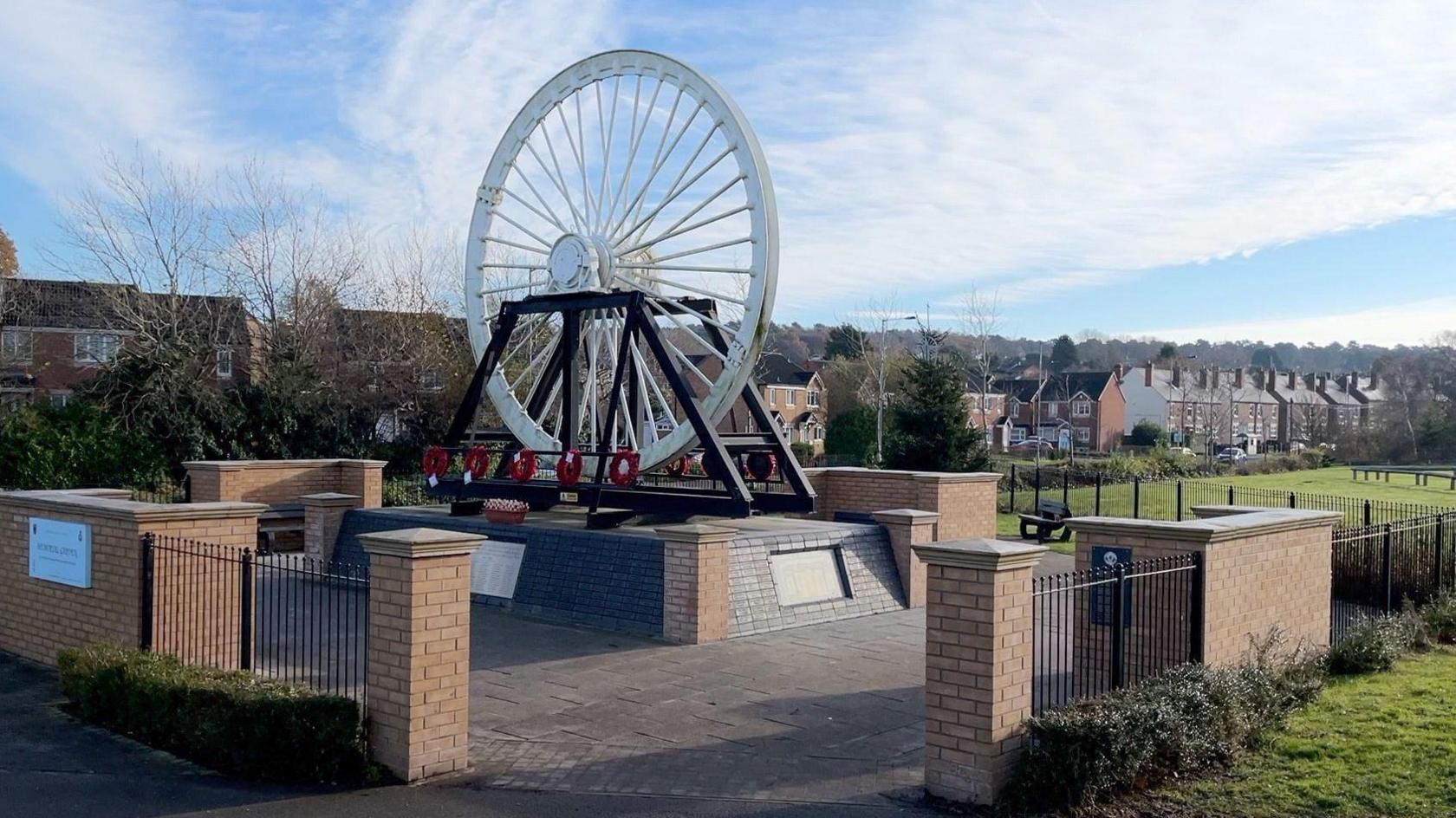
A miners' memorial stands at the site of the former Littleton Colliery
At its height in the early 1980s, Littleton Colliery employed about 1,900 workers.
Chris Stewart, known as 'Cobba' to his mining colleagues, was a mechanic there.
He joined the strike in March 1984, not expecting it would be full year until he returned to work.
"We were fighting not just for our jobs, but for our sons' jobs and our grandsons' jobs and for a good wage into the house," he said.
The number of workers who crossed the picket line increased as the dispute continued, he said, causing conflict within the community.
"Still to this day there are people who don't speak to one another. Good mates, one went back to work, one stuck it out. It broke families up, it broke relationships."
He now works night shifts for a local warehouse and believes many former miners have suffered financial hardship due to the pit closures.
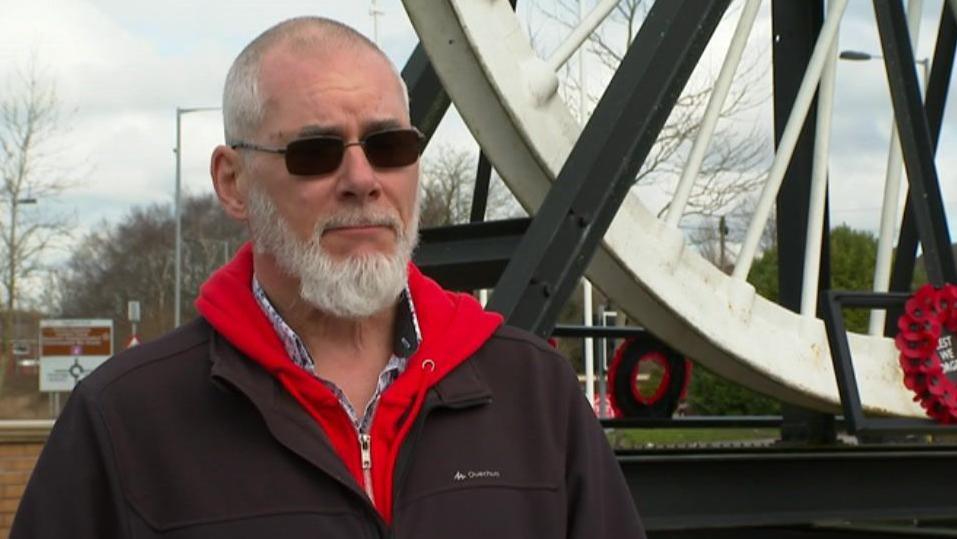
Chris Stewart worked at Littleton Colliery from 1976 to 1993
The National Union of Mineworkers, at the time led by Arthur Scargill, was opposed to government plans to reform the coal industry and close 20 mines.
A ballot of NUM members in the Midlands shortly before the miners strike began revealed limited support for industrial action.
Coal towns falling further behind - charity
Some miners crossed the picket lines each day to continue to work.
One of those was Conservative councillor Patrick McLoughlin.
He went on to become an MP, Transport Minister and a member of the House of Lords.
"At first there was a dozen or so of us crossing the picket line. We felt that because the strike ballot hadn't taken place that we weren't going to be intimidated by somebody who had a political agenda."
"As time went on more and more people started to cross the picket line. In the end at Littleton Colliery, the vast majority had returned to work before the end of the strike," Mr McLoughlin said.
The NUM held a special conference on 3 March 1985, where coalfield delegates narrowly voted to end the strike. Miners returned to work on 5 March.
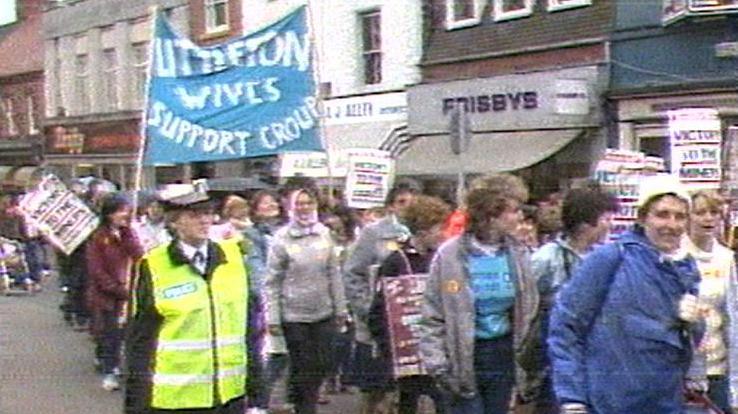
Strike supporters marched through Cannock in 1984
The colliery was eventually closed in December 1993, with 800 workers losing their jobs.
The 1984 miners strike was regarded as a defining moment in the history of British coal mining and the biggest industrial dispute in post-war Britain.
It pitted thousands of miners and their trade union against then prime minister Margaret Thatcher and her Conservative government.
Four decades on, Dr Matthew Francis from the University of Birmingham, said it was difficult to perceive the dispute as anything other than a defeat for the miners.
"The NUM was the biggest, the most powerful of the trade unions in the mid 1980s. The government succeeded in breaking it, they succeeded in fulfilling their objective of closing mines," he said.
"So it has longer ramifications for industrial relations. It's difficult to imagine a strike of that scale or duration ever happening again."
Cannock Chase Museum has an exhibition documenting the history of mining in Staffordshire.
It includes a book of picket line songs.
The museum's collections officer, Morwenna Rae, said it was important for this chapter of modern history to be documented.
She said: "It's wonderful when old miners come through and you can see the nostalgia and the memories. They often bring their families, so it's lovely to see inter-generational connections and their grandchildren learning about it.
"For the community, if you've not grown up with the mining, it's a way to link with that heritage and understand your town better."
Follow BBC West Midlands on Facebook, external, X, external and Instagram, external. Send your story ideas to: newsonline.westmidlands@bbc.co.uk, external
Related topics
- Published10 December 2023
